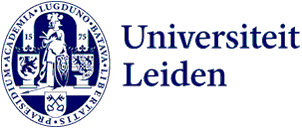163 search results for “machine archeologie” in the Student website
-
 Mitra Baratchi
Mitra BaratchiFaculty of Science
-
 Max van Duijn
Max van DuijnFaculty of Science
-
 Pepita Hesselberth
Pepita HesselberthFaculty of Humanities
-
 Lettie Dorst
Lettie DorstFaculty of Humanities
-
 Peter van der Putten
Peter van der PuttenFaculty of Science
-
Between literature and law: 'Art can show us how law works and what is just'
The interplay between literature and law is what Frans-Willem Korsten wants to address as a brand-new professor of Literature, Culture and Law. That means doing research, but certainly also teaching. 'The Hague is of crucial importance for the humanities.'
-
Purple Friday: ‘I try to give the community some support’
Purple clothing and a pride flag flying from all University buildings: Leiden University is once again taking part in Purple Friday. How do people experience this day? We asked some employees and students of the Faculty of Humanities.
-
SAILS Workshop: AI and LLMs: Keeping the Linguist in the Loop
-
Students become ‘change agents’ in Sustainability Challenge
Leiden students working to solve a sustainability problem at the request of an external party: that is the Sustainability Challenge. During a recent symposium, 28 groups of four to five students unveiled their solutions. The commisioners expressed great enthusiasm.
-
Voice of the ocean
There are many tributaries to Rosalin Kuiper’s story and they all lead to the sea. The 28-year-old sailor was one of the five-person Team Malizia in the world’s most prestigious sailing competition: the Ocean Race.
-
 Willem van der Does
Willem van der DoesSocial & Behavioural Sciences
-
Career College: Working as a Data Scientist
Career and apply for jobs
-
Veni grants for 22 researchers from Leiden University
An impressive 22 research projects by Leiden researchers have been awarded Veni funding from the Dutch Research Council (NWO).
